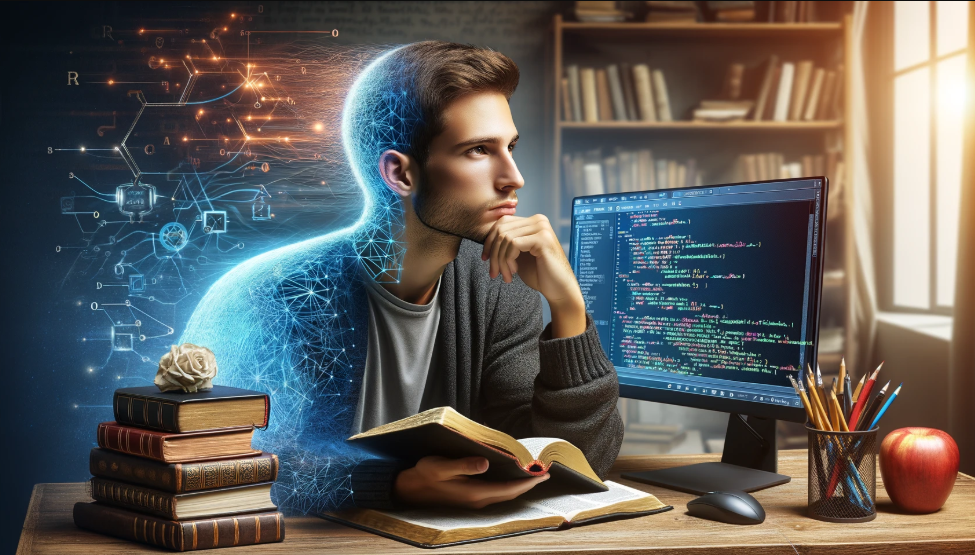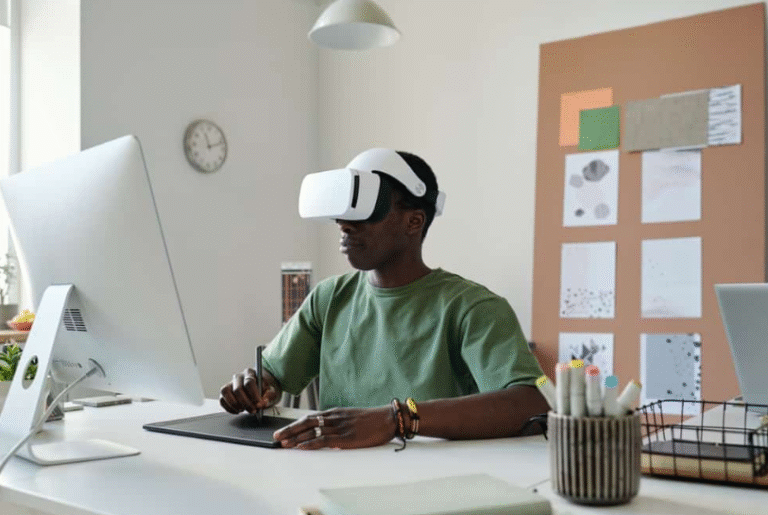Artificial Intelligence is transforming the creative industry in profound ways. It alters traditional methods in visual arts, music, and storytelling. AI tools facilitate unique artistic explorations, blending human creativity with machine efficiency. However, this evolution raises important ethical questions about ownership and authenticity. As artists navigate this new landscape, the implications for creativity and artistic expression continue to unfold, suggesting a future where the boundaries of art may be redefined.
The Rise of AI in Visual Arts
As technology continues to evolve, the integration of artificial intelligence in visual arts has become increasingly prominent, reshaping traditional creative processes.
AI-generated art serves as a revolutionary tool, enabling artists to explore new dimensions of creativity. This technology fosters creative collaboration, allowing human intuition to merge with machine precision, ultimately expanding artistic possibilities and encouraging innovative expressions that resonate with diverse audiences seeking liberation in their creative endeavors.
See also: How Artificial Intelligence Is Enhancing Online Shopping Experiences
AI’s Role in Music Composition
The influence of artificial intelligence extends beyond visual arts, permeating the realm of music composition with equally transformative effects.
AI collaboration enhances creativity, enabling musicians to explore new soundscapes through innovative creative algorithms. These algorithms analyze vast datasets, generating unique compositions that challenge traditional boundaries.
This allows artists to harness technology in ways that expand their artistic freedom while maintaining a distinctly human touch.
Transforming Storytelling With AI
While traditional storytelling relies heavily on human imagination and narrative structure, the advent of artificial intelligence is redefining how stories are created and experienced.
AI enables the development of interactive narratives, allowing audiences to engage with plots dynamically. Through algorithmic creativity, writers can explore new dimensions of storytelling, crafting personalized experiences that resonate deeply with individual preferences and enhancing the freedom of creative expression.
Ethical Considerations and Future Implications
Although the integration of artificial intelligence into the creative industry has opened up new avenues for innovation, it also raises significant ethical concerns that demand careful consideration.
Issues surrounding intellectual property and creative ownership become increasingly complex as AI-generated works emerge. Stakeholders must navigate these challenges to ensure fair recognition and compensation, fostering an environment where creativity flourishes while upholding ethical standards.
Conclusion
As the brush of creativity intertwines with the code of algorithms, the creative industry stands at a crossroads, symbolized by a canvas painted with both vibrant hues and shadowy uncertainties. This fusion of human intuition and machine intelligence heralds a new era of artistic expression, yet it also beckons a critical examination of ownership and ethics. In navigating this intricate landscape, the future of creativity may flourish like a garden, where diverse ideas blossom, but care must be taken to nurture both roots and blooms.



